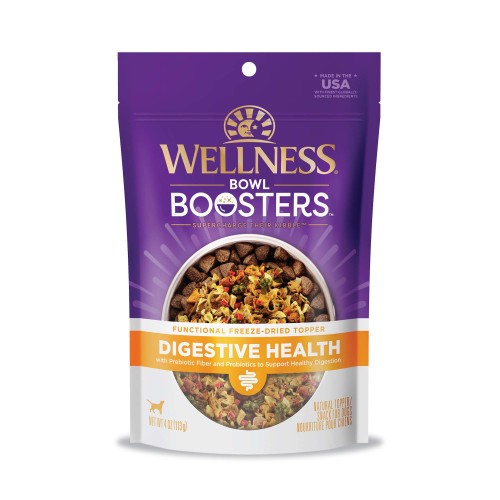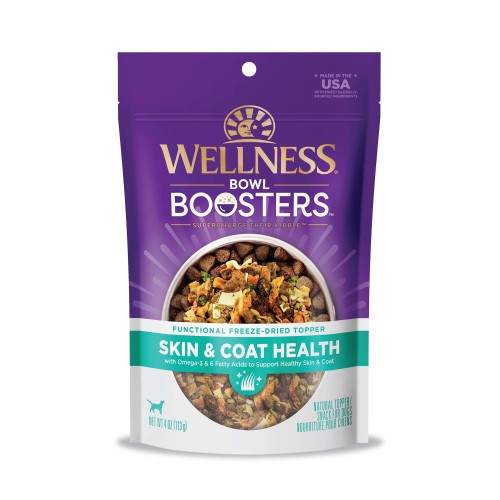July 16, 2020
The Average Cost for Dog Teeth Cleaning
Ah, the joys of dog ownership. Collecting little baggies of fun on your daily walks, apologizing to the neighbor for the loud barking your furry friend lets out whenever he sees a (shhh! Don’t say it!) squirrel, and, of course, brushing his teeth. There are many wonderful moments provided by your pooch, but the time spent in doggie dental care might not rank high on your list of favorites. Which is why most owners (gulp) tend to skip it. There are so many questions: “How do you brush dog teeth?” “What do you use for dog teeth cleaner?”
The fact of the matter is this: your dog’s overall health depends on the health of his teeth. Just like with humans, poor dental health can cause a wealth of other health problems , including heart, liver and kidney disease. That’s why it’s critical to incorporate dental care into your dog care routine (including brushing your dog’s teeth and offering toys and treats that promote good dental health). It’s also important to schedule a dental cleaning with your veterinarian.
What is the Cost of a Dog Teeth Cleaning?
The simple answer is anywhere from $150 to $500 without extractions, which is a pretty big range. While prices will vary from vet to vet, there are a few factors that play into the cost of the procedure, including:
- Your Dog’s Weight
This seems like a simple factor, but a heavier pet will require higher dosages of all medication, including anesthesia, all of which adds on to the cost of dog teeth cleaning. - Your Dog’s Age
Older dogs may require more extensive pre-procedure bloodwork and screening, which may end up costing more. - Existing Dental Damage
Once your veterinarian has cleaned away the tartar and plaque, she can take a better look at the current state of the teeth and will have a clearer picture of decay or disease. At this point in the procedure, it may be necessary to extract teeth that have gone beyond repair, and these extractions will incur an additional fee, sometimes well into the thousands. It’s a good idea to talk over potential these additional costs with your vet prior to the cleaning so that you’re not blindsided with a bill after the fact. - Medication
Post-cleaning medication may be required, including antibiotics to prevent infection or painkillers for post-extraction ache.
Dog tooth extraction cost:
Dog tooth extraction costs can vary, depending on the complexity and location of the extraction and can cost upward of $800 a tooth. It’s reasonable and responsible for you to ask your vet for an estimate before any procedure begins, and if the cost of dog tooth extraction is going to be added onto the bill, you can ask to be notified before the procedure takes place.
What Happens During a Dog Dental Cleaning?
Exam, X-Rays and Bloodwork
As with any procedure, a dog dental cleaning begins with a thorough examination by your veterinarian and x-rays of the mouth are taken to asses any damage beneath the gum line. Because a dog must be sedated to undergo this type of treatment (and really, who wouldn’t want to be a little sedated at the dentist?), most veterinarians require a blood work panel to check for anything that might cause a negative reaction to anesthesia. Your dog must be healthy enough to be sedated to be treated, so don’t skimp on this important step. Also keep in mind that with any anesthesia, fasting is typically required for some time before the procedure, so make sure to follow your vet’s instructions about removing food and water from your pooch for the allotted time prior to the cleaning.
The Cleaning
After your buddy has been deemed ready, anesthesia will be administered, and the cleaning begins. First, a technician will remove any large pieces of tartar (that gross white, brown, yellow, or orange material that gathers on the teeth). After the tartar is scraped away, the teeth are analyzed for signs of infection or disease and a decision is made regarding the best course of action, such as whether there are any teeth that need to be removed.
Once any of the more serious issues are addressed, the plaque removal begins, typically done with an ultrasonic scaler (a dental tool that vibrates at a high speed). Most plaque is made of bacteria, so leaving it below the gum line is a quick route to gum disease for your pup. An infection here can spread through the blood stream to the heart, kidneys, or liver, so removing this plaque is the most important step of the dental cleaning. Dental probes are then used to measure the depth of the pockets between the tooth and the gum; deep pockets here indicate periodontal disease. The teeth are then polished and treated with fluoride, which helps prevent future tartar and plaque build-up. Sometimes after this step, a sealant is applied to the teeth that helps keep out future tarter and plaque.
Finally, your fur baby will spend a little time in recovery and then will need plenty of love and kisses once returning home. When considering the described treatment here, remember that every veterinarian practices differently, so talk with your vet about what to expect.
How Often Should Your Dog Have a Dental Cleaning?
Well, this all depends on you. The experts recommend a dental cleaning every six months to a year, but that time could be extended if you are caring for your dog’s dental health on a consistent basis. This means brushing at least every other day , providing your buddy with toys that help clean the teeth, and offering treats that clean your dog’s teeth . What better way to help lower the cost of dog teeth cleaning?
Keeping your dog’s teeth clean doesn’t have to feel like a chore when you can offer Wellness WHIMZEES as a fun and delicious way to clean. WHIMZEES dental treats offer the best way to keep your dog’s dental cleanings fewer and farther between, helping to prevent the plaque and tartar that requires a professional cleaning. Try WHIMZEES brushzees for the ultimate in dog dental care, with a unique design that offers fresher breath and cleaner teeth.





